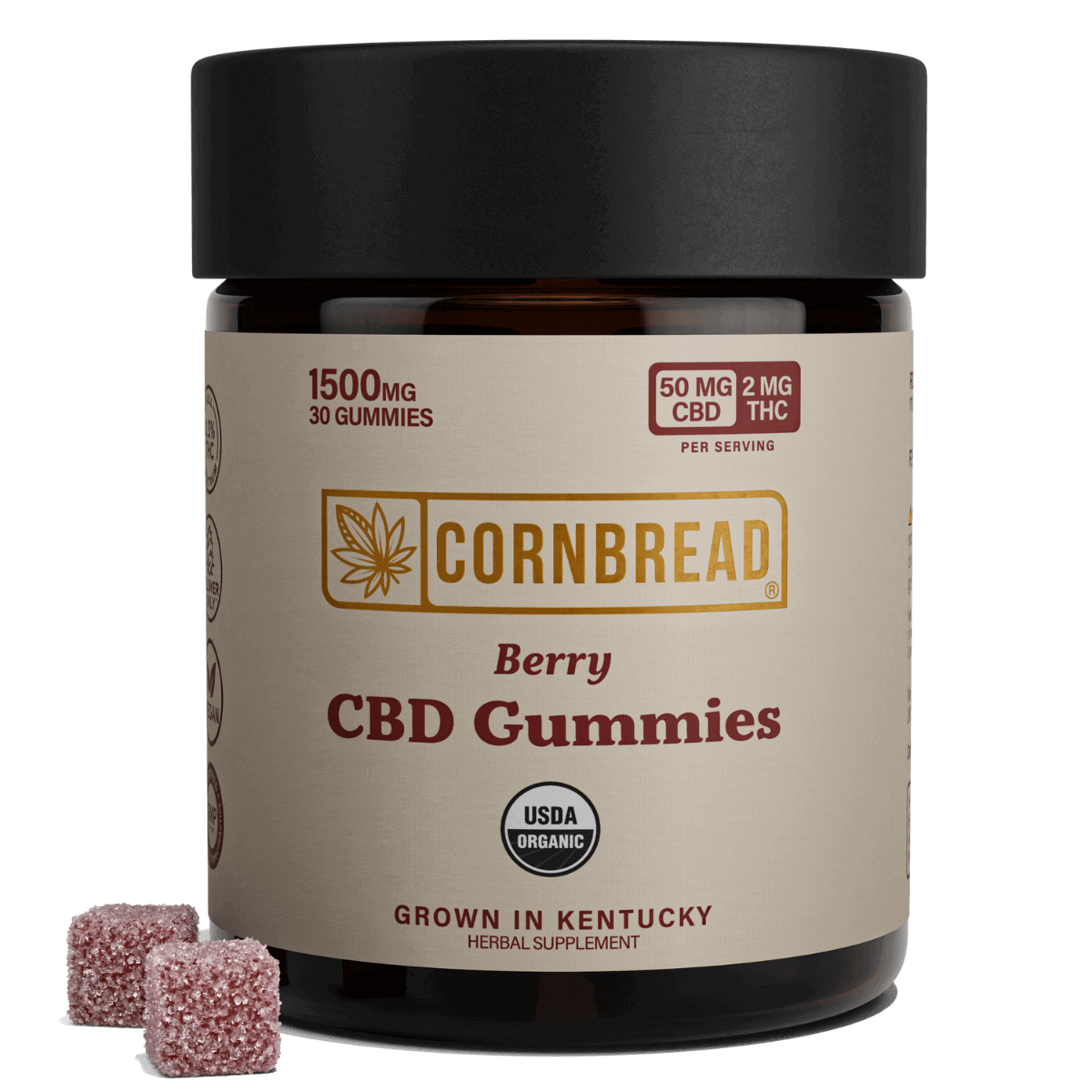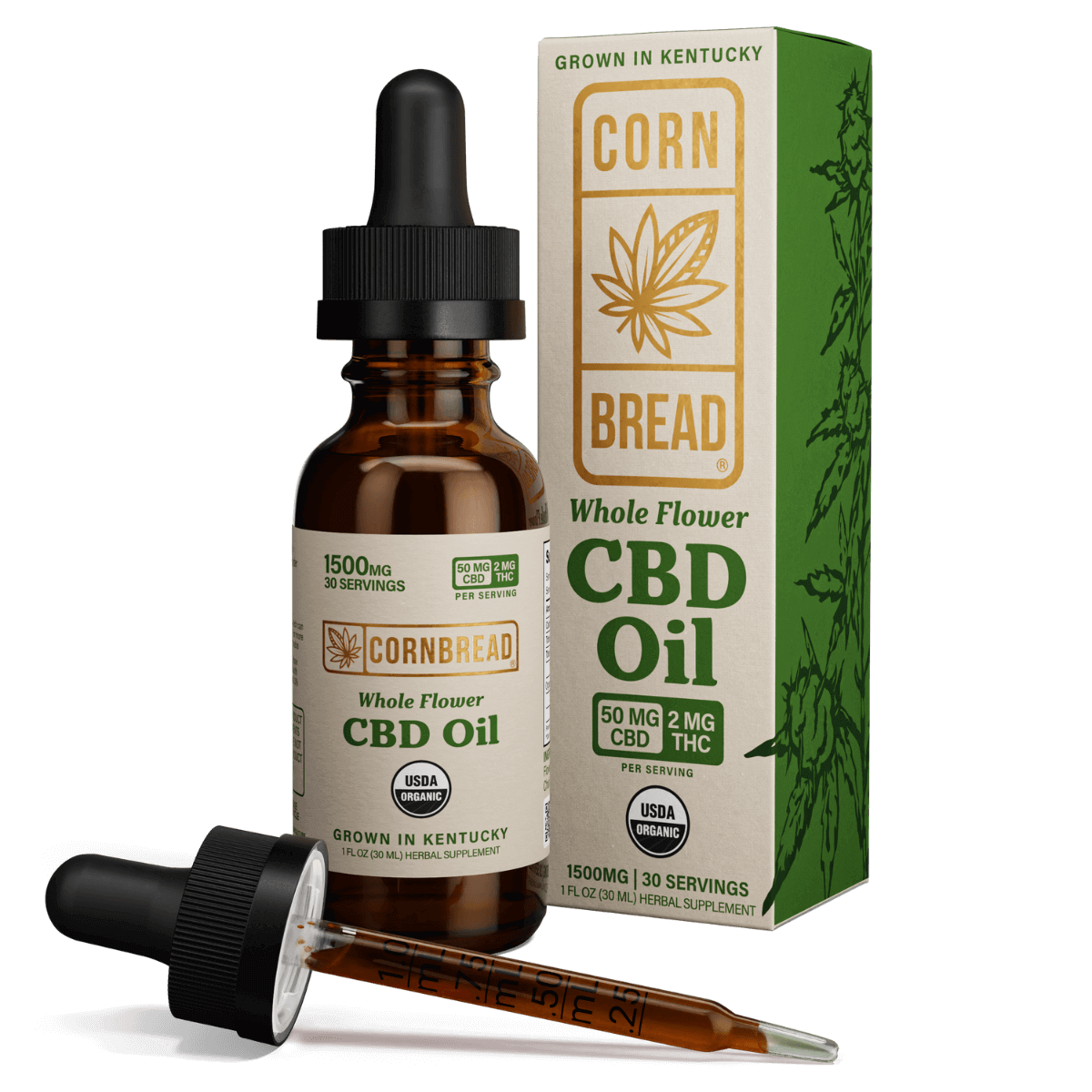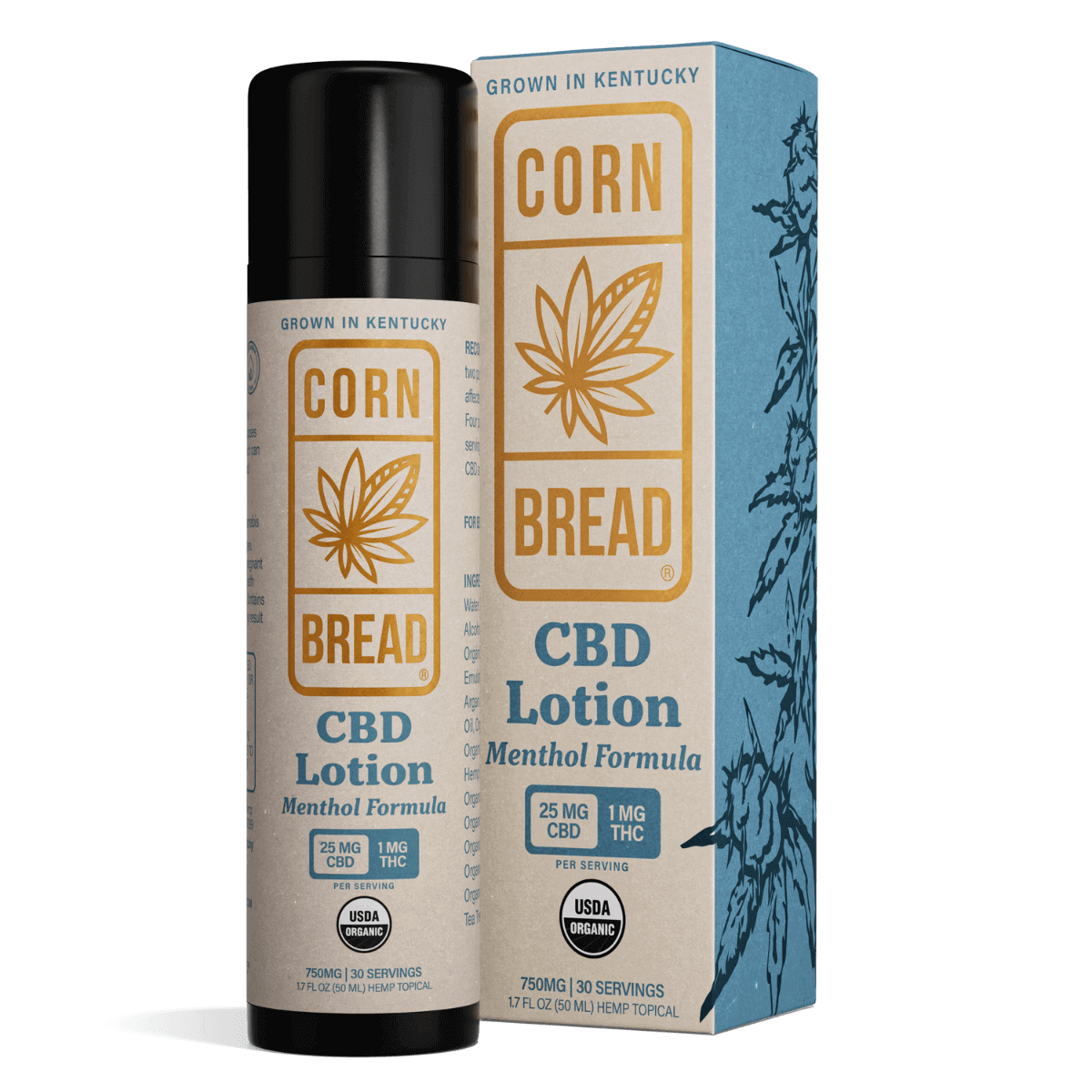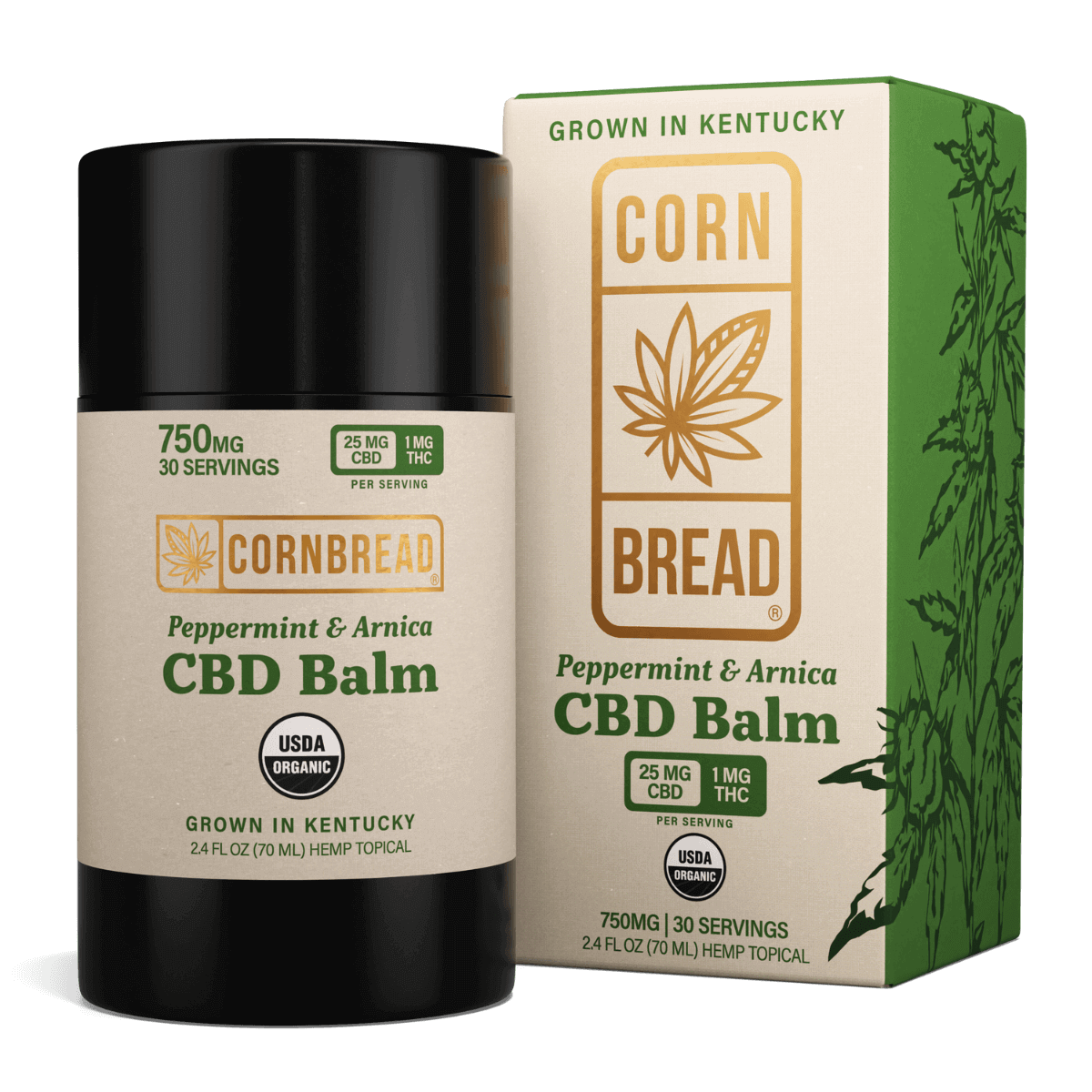Table of Contents
- FULL SPECTRUM CBD EXTRACT
- WHAT IS FULL SPECTRUM CBD?
- OTHER TYPES OF CBD
- CBD ISOLATE
- BROAD SPECTRUM CBD
- BENEFITS OF FULL SPECTRUM CBD
- THE ENTOURAGE EFFECT
- TYPES OF FULL SPECTRUM CBD
- RISKS OF FULL SPECTRUM CBD
- DOES FULL SPECTRUM CBD GET YOU HIGH?
- IS FULL SPECTRUM CBD LEGAL?
- CONCLUSION: WHAT IS FULL SPECTRUM CBD
Full spectrum CBD extract
Everything you need to know
CBD products have exploded in popularity since the passage of the 2018 Farm Bill, which legalized all hemp-derived CBD products that contain less than 0.3 percent delta-9 THC by dry weight.1 This new popularity has introduced new terms like "full spectrum" and "broad spectrum."
So, what is full spectrum CBD, and how is it different than other types of CBD?
Let's dive in, and learn together what makes a CBD product "full spectrum" and what that means.
What is Full Spectrum CBD?
Full spectrum CBD refers to a hemp-derived extract that contains cannabidiol (CBD) as well as other cannabinoids and other compounds.2 These other components of full spectrum CBD extract include:
- Cannabinoids3
- CBD
- delta-9 THC
- CBC
- CBN
- CBG
- CBDa
-
CBDV
- Terpenes4
- Myrcene
- Limonene
-
Caryophyllene
- Flavonoids5
- Cannaflavin A
- Cannaflavin B
-
Cannaflavin C
CBD and THC are the cannabinoids mostly responsible for the popular effects of cannabis products, which is why you've likely heard of them. However, the highest quality full spectrum CBD products include much more than just CBD and THC.
CBD is a cannabinoid that is naturally produced in the female flower of the hemp plant, just like marijuana produces THC. These female flowers also produce more than 100 other cannabinoids like CBG, CBN, CBC, and less than 0.3 percent Delta-9 THC, all of which should be present in an authentic full spectrum CBD product.6
These female hemp flowers also produce terpenes and flavonoids, which are aroma molecules also found in fruits and vegetables. Along with the full spectrum of cannabinoids, terpenes and flavonoids are what make cannabis smell the way it does.7
Other Types of CBD
After hemp was legalized again in 2018, CBD companies began producing products that were free of THC. Made with CBD isolate or broad spectrum CBD extract, these products do not contain THC, or other key components of full spectrum extracts like terpenes and flavonoids.
These products continue to be sold today, but with decreasing popularity as consumers learn more about the benefits of full spectrum CBD products. Full spectrum CBD products make up nearly 75 percent of the total market.8
CBD Isolate
CBD isolate is 99% pure CBD that is crystalline in form and looks similar to table salt. This type of CBD is the result of multiple processing steps that remove the THC, terpenes, flavonoids, and minor cannabinoids from the natural hemp extract. Pure CBD isolate does not contain any other hemp plant compounds besides CBD.9
Broad Spectrum CBD
Broad spectrum CBD is a hemp extract that has been processed to remove as much of the THC as possible. This process is nearly impossible to perform without also removing most of the terpenes, flavonoids, and minor cannabinoids in the extract. That's why most broad spectrum CBD products are simply CBD plus a few minor cannabinoids in very low levels.

Benefits of Full Spectrum CBD
CBD works by affecting a recently discovered system in the body called the endocannabinoid system. This network of cannabinoid receptors overlays the central nervous system, and the receptors can be found all over the human body.10
There are at least 100 cannabinoids found in the cannabis plant, and studies show that these compounds work synergistically with the endocannabinoid system. This process is called the “entourage effect.”11
The Entourage Effect
Arguably the biggest difference between full spectrum CBD and THC-free products made with CBD isolate or broad spectrum CBD is the entourage effect. Similar to a sports team, the full spectrum of cannabinoids, along with terpenes and flavonoids, all work together to promote balance and homeostasis in our bodies.
When removing THC and other compounds from the hemp extract, the entourage effect won't be nearly as significant. Just like a sports team with missing players wouldn't perform as well, either.
The phrases “pure CBD” or “99 percent pure CBD” might sound like a good thing. But in reality, removing THC from the hemp extract actually produces a less effective product.
Types of Full Spectrum CBD
Now that you know what full spectrum CBD is, it is also important to know that there are different types of full spectrum CBD — some made with whole plant, and others made with Flower-Only™. Not all full spectrum CBD is created equal.
When we started Cornbread Hemp in early 2019, we saw the low quality standards set by Corporate CBD, especially when it comes to full spectrum. Instead of using only the hemp flowers, big CBD companies decided to coin the term "whole plant," which means including the stalk, stem, and leaves that do not contain cannabinoids, in addition to the flowers. And then they marketed "whole plant" to consumers as if that was a good thing!
Whole Plant
But as you have learned, CBD and the full spectrum of cannabinoids, terpenes, and flavonoids come from the flower of the hemp plant — not the stalk, stem, or leaves.
So why do big CBD companies use the entire hemp plant to make their CBD products? First, because Corporate CBD is focused on mass production and profits. And second, because Corporate CBD is still gripped by the stigma associated with THC.
Simply put, using the "whole plant" doesn't matter if the company's end goal is to process the extract into CBD isolate or broad spectrum CBD. And when these same companies make full spectrum products from this same process, the end result is a full spectrum product that tastes so grassy and bitter that it requires flavors like peppermint to cover up the filler.
Flower-Only™
Anyone who has experience with cannabis knows that the seeds, stems, and leaves do not contain any cannabinoids. That's why you removed them from your stash in college.
It's also why we were shocked to learn that most full spectrum CBD products are made with the whole plant. It seemed obvious to us that this method was cutting corners, and it should be a red flag to any full spectrum CBD consumer.
That's why we coined the term Flower-Only™. It's as simple as it sounds — we remove the flowers from the hemp plant before we extract our full spectrum CBD oil. That means we don't have leftover chlorophyll and plant matter in our hemp extract, which allows us to formulate our products without the need for cover flavors.
Risks of Full Spectrum CBD
Even though full spectrum CBD products are the best option if you're shopping for the most effective CBD, there are still a few reasons why someone might choose CBD that does not contain the full spectrum of cannabinoids.
Failing a Drug Test
One of the reasons you might not want to choose a full spectrum CBD oil product is if you have a drug test in the near future. If a positive drug test for THC is going to have a serious impact on your life, don't make the mistake of taking a full spectrum CBD product — or any CBD product, for that matter. That's because some drug tests detect CBD as the same as THC, so CBD isolate could flag as a false positive for THC.
That’s why we recommend informing your workplace HR department (or the appropriate oversight person) of your intention to take full spectrum CBD products. If you get approval to take any form of CBD, be sure to get that approval in writing!
Another option is to use CBD topicals, like our CBD creams, or our organic CBD balm. Cannabinoids do not appear to penetrate the skin deep enough to absorb into the bloodstream.12
Potential Side Effects
While full spectrum CBD products contain a level of THC that is not nearly enough to get you high, they could potentially cause side effects that you should be aware of before trying them for the first time. The most common potential side effects of taking full spectrum CBD include:
- Tiredness
- Dizziness
- Dry mouth
Tolerance for these side effects tend to develop over time.13
Does Full Spectrum CBD Get You High?
No, full spectrum CBD products will not get you high. CBD itself does not have the same psychoactive effects as THC. That's because CBD does not bind with the receptors in your brain the way that THC does.
In fact, CBD has potentially been shown to counteract the psychoactive effects caused by THC by blocking the receptors in your brain that normally bind to THC.
However, even though CBD is a non-intoxicating cannabinoid, it still may affect your mood, which some may consider to be psychoactive.
Is Full Spectrum CBD Legal?
Prior to 2018, Cannabis sativa cultivation was only permitted by specific state laws for medical use. But the Farm Bill of 2018 made it possible for cannabis plants containing trace amounts of Tetrahydrocannabinol (THC) to be cultivated nationwide.
This new law clarified the definition of "hemp" to be cannabis plants that contain no more 0.3 percent THC. Anything above that threshold is considered to be federally illegal marijuana.
That's why any hemp-derived CBD product that contains less than 0.3 percent THC is federally legal and can be shipped to all 50 states and US territories.
Conclusion: What is Full Spectrum CBD
We believe that full spectrum CBD is the only type of CBD you should consider spending your hard earned money on, unless a positive test for THC will negatively affect your life. When it comes to purchasing CBD products, you can buy those that contain only the pure CBD molecule, or those that contain all of the beneficial properties of the cannabis plant, depending on your specific needs. That's why we recommend buying Flower-Only™ full spectrum CBD products, like the ones we make here at Cornbread Hemp. If you're looking for the best product to start with, we recommend our best-selling CBD gummies!










 Log in
Log in






















